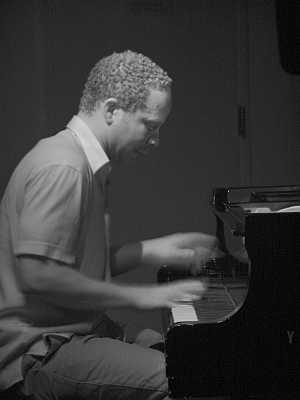I wanted to chat with you about this live date. During your career, you put out a substantial body of work, so I wonder if you remember this particular offering. Maybe describing the cover art will jog your memory. It's a facial shot of you with a cheeky smile, and it has the innocence of a high school yearbook photograph. You sported a goatee, and a short Afro. Staring at photo reminds me of all the fun your group seemed to have that evening, and the great time I experienced listening to it.
If you're curious, I rediscovered it a few weeks ago while alphabetizing my jazz CD collection, which currently occupies every inch of the four CD towers my wife purchased at Wal-Marts. I haven’t completed the task yet. Organizing CD’s is time consuming. I've contemplated hiring someone to finish the job because, honestly Gene, I don’t think I ever will.
The Gene Harris Trio Plus One transported me back to the exact moment in 2000 when I purchased and listened to the album for a solid month. I'm not kidding you. Every time I played the album it felt as if I was sitting in front of the bandstand. Listening to the album, I actually fantasized I replaced you. I can't recall every detail of the fantasy, for example, if you summoned me from the audience, or I if I simply imagined that I was you.
Anyway, I do recall fantasizing about sitting at the piano flanked by bassist Ray Brown, and drummer Mikey Roker playing the Battleship Hymn of the Republic and Brown’s Gene’s Lament. My ten fingers zipped across the piano keys. After those tunes I whispered to Turrentine's: “Lets play a ballad. Ray’s tune took a lot out of the crowd”.
I called Erroll Garner’s Misty. The ballad seemed to give the crowd time to catch their breath. But Turrentine and I didn’t allow them to become too relaxed. We hit them with Uptown Sop. The crowd cheered while Turrentine and I horsed around with the chord changes. Often when I listen to a remarkable recording I wish I was a musician instead of a writer. Maybe I will realize that in my next life.
I heard you liked your gigs to be loose, and you never prepared a set list. You want the music to be open. That’s what I loved about The Gene Harris Trio Plus One, the openness, the spontaneity, and how you made the crowd feel like they were at a neighborhood block party.

